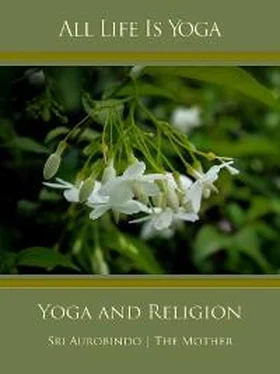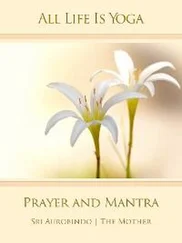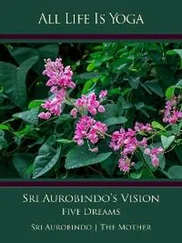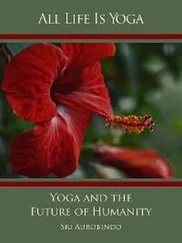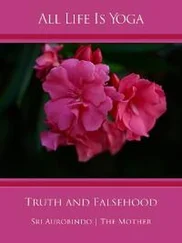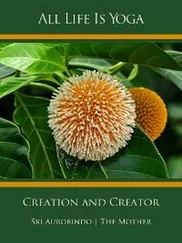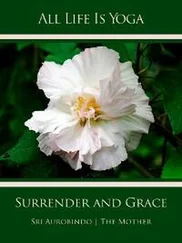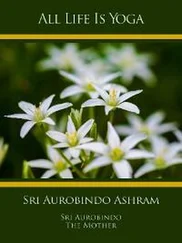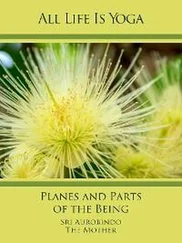Sri Aurobindo - All Life Is Yoga - Yoga and Religion
Здесь есть возможность читать онлайн «Sri Aurobindo - All Life Is Yoga - Yoga and Religion» — ознакомительный отрывок электронной книги совершенно бесплатно, а после прочтения отрывка купить полную версию. В некоторых случаях можно слушать аудио, скачать через торрент в формате fb2 и присутствует краткое содержание. Жанр: unrecognised, на английском языке. Описание произведения, (предисловие) а так же отзывы посетителей доступны на портале библиотеки ЛибКат.
- Название:All Life Is Yoga: Yoga and Religion
- Автор:
- Жанр:
- Год:неизвестен
- ISBN:нет данных
- Рейтинг книги:4 / 5. Голосов: 1
-
Избранное:Добавить в избранное
- Отзывы:
-
Ваша оценка:
- 80
- 1
- 2
- 3
- 4
- 5
All Life Is Yoga: Yoga and Religion: краткое содержание, описание и аннотация
Предлагаем к чтению аннотацию, описание, краткое содержание или предисловие (зависит от того, что написал сам автор книги «All Life Is Yoga: Yoga and Religion»). Если вы не нашли необходимую информацию о книге — напишите в комментариях, мы постараемся отыскать её.
All Life Is Yoga: Yoga and Religion — читать онлайн ознакомительный отрывок
Ниже представлен текст книги, разбитый по страницам. Система сохранения места последней прочитанной страницы, позволяет с удобством читать онлайн бесплатно книгу «All Life Is Yoga: Yoga and Religion», без необходимости каждый раз заново искать на чём Вы остановились. Поставьте закладку, и сможете в любой момент перейти на страницу, на которой закончили чтение.
Интервал:
Закладка:
I. WORDS OF THE MOTHER The time of religions is over. We have entered the age of universal spirituality, of spiritual experience in its initial purity. — The Mother * * *
1. Difference Between Yoga and Religion Chapter 1 Difference Between Yoga and Religion Sweet Mother, what is the difference between yoga and religion? Ah! my child... it is as though you were asking me the difference between a dog and a cat! (Long silence) Imagine someone who, in some way or other, has heard of something like the Divine or has a personal feeling that something of the kind exists, and begins to make all sorts of efforts: efforts of will, of discipline, efforts of concentration, all sorts of efforts to find this Divine, to discover what He is, to become acquainted with Him and unite with Him. Then this person is doing yoga. Now, if this person has noted down all the processes he has used and constructs a fixed system, and sets up all that he has discovered as absolute laws – for example, he says: the Divine is like this, to find the Divine you must do this,make this particular gesture, take this attitude, perform this ceremony, and you must admit that this is the truth, you must say, “I accept that this is the Truth and I fully adhere to it; and your method is the only right one, the only one which exists” – if all that is written down, organised, arranged into fixed laws and ceremonies, it becomes a religion. * * *2. Nature of Religion 3. A Fundamental Error in Religion 4. Nature of Yoga 5. Freedom and Fatality: The Aim of Yoga 6. A Story of Two Clergy Men on a Boat 7. Atmosphere in Religious Monuments 8. Hell and Heaven Created by Religions 9. Renunciation and Nirvana Idea in Religions 10. Difference Between Morality and Spirituality 11. Is Sri Aurobindo’s Teaching a New Religion? 12. The Future of Religions II. WORDS OF SRI AUROBINDO 1. What is Spirituality? 2. Ordinary Life, Religious Life and Spiritual Life 3. What is Religion? 4. Questions and Answers 5. Religious Fanaticism 6. Religion as the Law of Life 7. The Spiritual Revolution APPENDIX ReferencesGuide Cover Table of Contents Start Reading
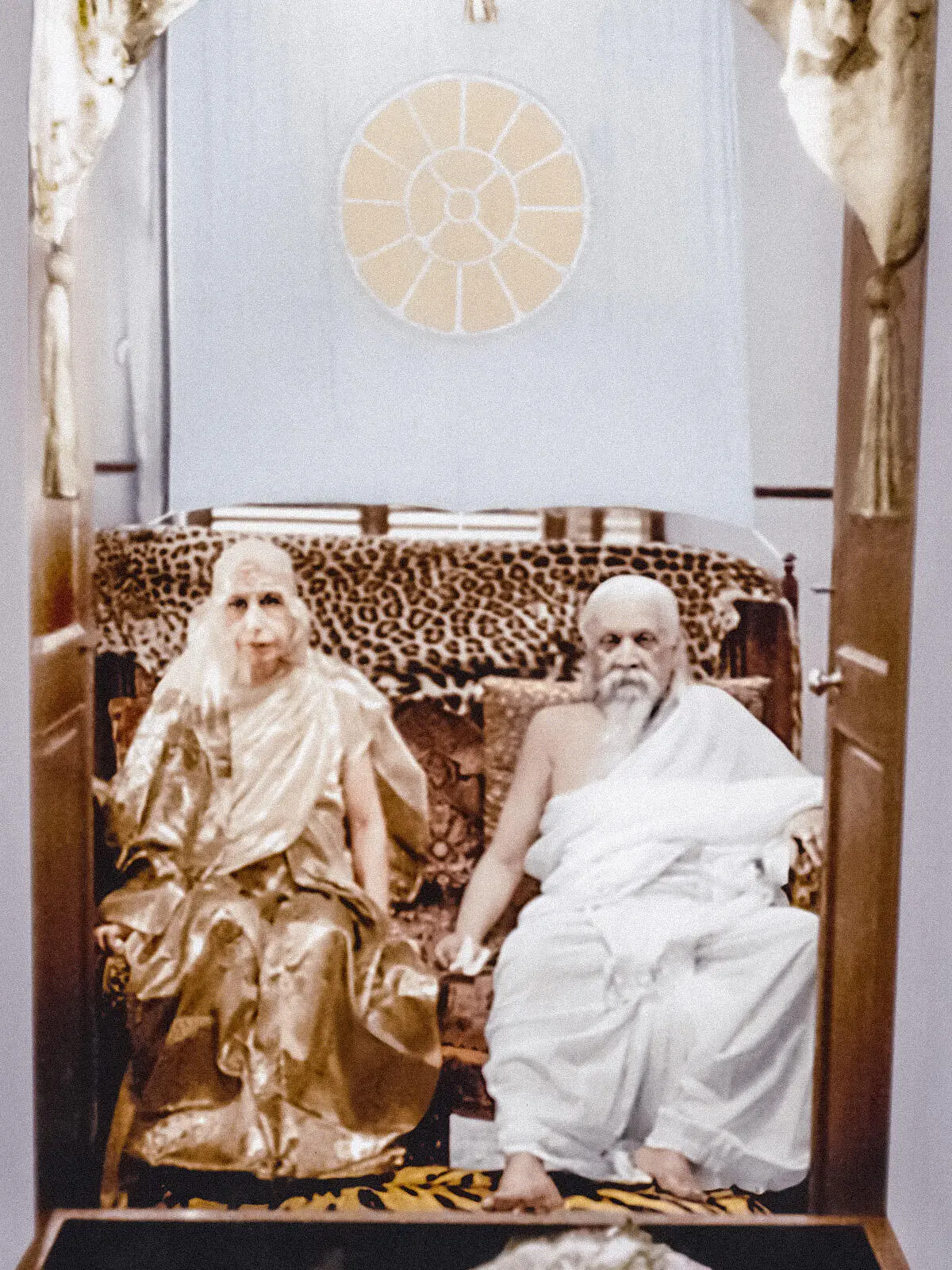
Essentially, Yoga is a generic name for the processes and the result of processes by which we transcend or shred off our present modes of being and rise to a new, a higher, a wider mode of consciousness which is not that of the ordinary animal and intellectual man. Yoga is the exchange of an egoistic for a universal or cosmic consciousness lifted towards or informed by the supra-cosmic, transcendent Unnameable who is the source and support of all things. Yoga is the passage of the human thinking animal towards the God-consciousness from which he has descended. — Sri Aurobindo
* * *
We call “religion” any concept of the world or the universe which is presented as the exclusive Truth in which one must have absolute faith, generally because this Truth is declared to be the result of a revelation. — The Mother
* * *
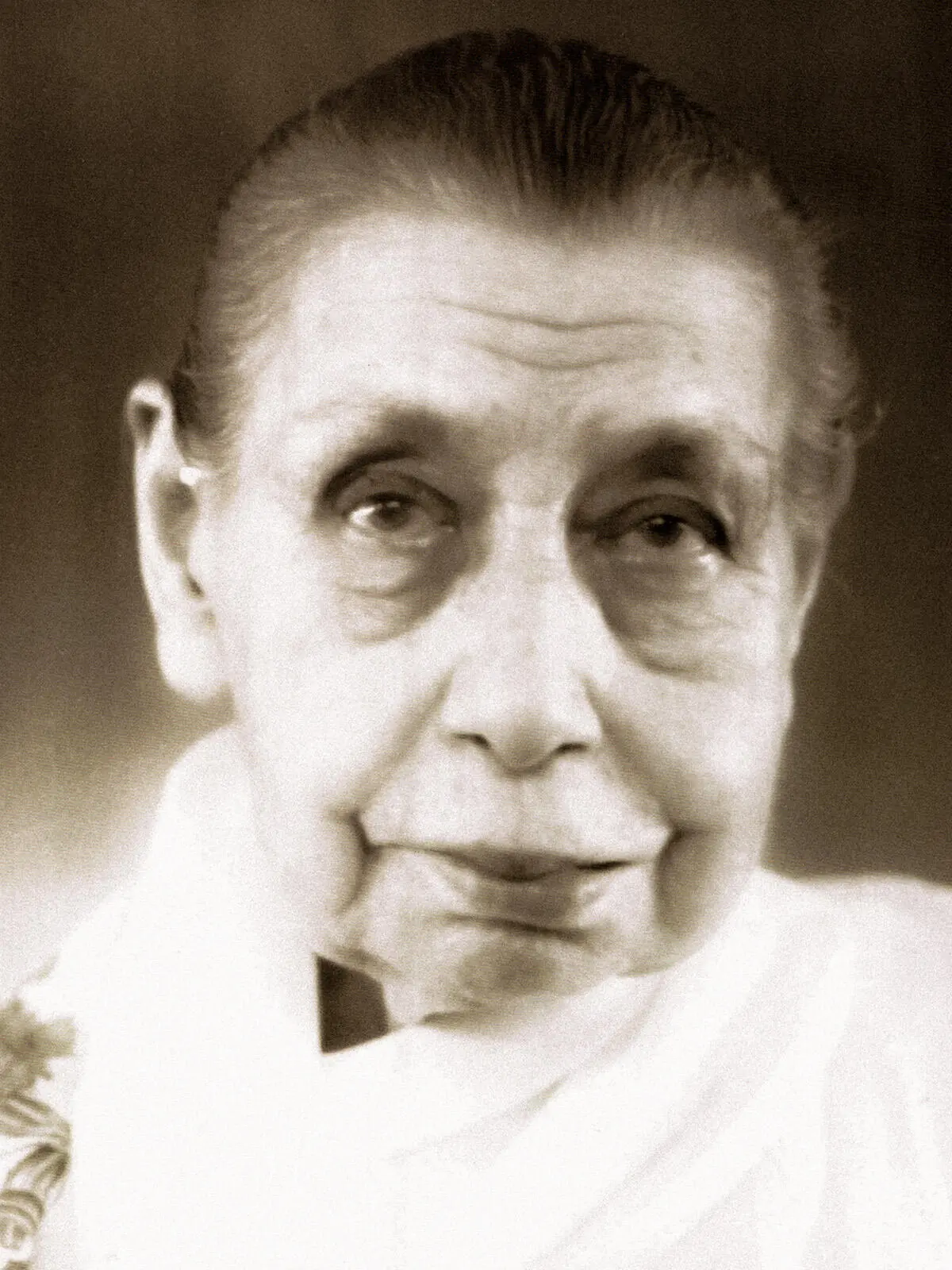
The time of religions is over. We have entered the age of universal spirituality, of spiritual experience in its initial purity. — The Mother
* * *
Chapter 1
Difference Between Yoga and Religion
Sweet Mother, what is the difference between yoga and religion?
Ah! my child... it is as though you were asking me the difference between a dog and a cat! (Long silence)
Imagine someone who, in some way or other, has heard of something like the Divine or has a personal feeling that something of the kind exists, and begins to make all sorts of efforts: efforts of will, of discipline, efforts of concentration, all sorts of efforts to find this Divine, to discover what He is, to become acquainted with Him and unite with Him. Then this person is doing yoga.
Now, if this person has noted down all the processes he has used and constructs a fixed system, and sets up all that he has discovered as absolute laws – for example, he says: the Divine is like this, to find the Divine you must do this,make this particular gesture, take this attitude, perform this ceremony, and you must admit that this is the truth, you must say, “I accept that this is the Truth and I fully adhere to it; and your method is the only right one, the only one which exists” – if all that is written down, organised, arranged into fixed laws and ceremonies, it becomes a religion.
* * *
Chapter 2
Nature of Religion
What is exactly the nature of religion? Is it an obstacle in the way of the spiritual life?
Religion belongs to the higher mind of humanity. It is the effort of man’s higher mind to approach, as far as lies in its power, something beyond it, something to which humanity gives the name God or Spirit or Truth or Faith or Knowledge or the Infinite, some kind of Absolute, which the human mind cannot reach and yet tries to reach. Religion may be divine in its ultimate origin; in its actual nature it is not divine but human. In truth we should speak rather of religions than of religion; for the religions made by man are many. These different religions, even when they had not the same origin, have most of them been made in the same way. We know how the Christian religion came into existence. It was certainly not Jesus who made what is known as Christianity, but some learned and very clever men put their heads together and built it up into the thing we see. There was nothing divine in the way in which it was formed, and there is nothing divine either in the way in which it functions. And yet the excuse or occasion for the formation was undoubtedly some revelation from what one could call a Divine Being, a Being who came from elsewhere bringing down with him from a higher plane a certain Knowledge and Truth for the earth. He came and suffered for his Truth; but very few understood what he said, few cared to find and hold to the Truth for which he suffered. Buddha retired from the world, sat down in meditation and discovered a way out of earthly suffering and misery, out of all this illness and death and desire and sin and hunger. He saw a Truth which he endeavoured to express and communicate to the disciples and followers who gathered around him. But even before he was dead, his teaching had already begun to be twisted and distorted. It was only after his disappearance that Buddhism as a full-fledged religion reared its head founded upon what the Buddha is supposed to have said and on the supposed significance of these reported sayings. But soon too, because the disciples and the disciples’ disciples could not agree on what the Master had said or what he meant by his utterances, there grew up a host of sects and sub-sects in the body of the parent religion – a Southern Path, a Northern Path, a Far Eastern Path, each of them claiming to be the only, the original, the undefiled doctrine of the Buddha. The same fate overtook the teaching of the Christ; that too came to be made in the same way into a set and organised religion. It is often said that, if Jesus came back, he would not be able to recognise what he taught in the forms that have been imposed on it, and if Buddha were to come back and see what has been made of his teaching, he would immediately run back discouraged to Nirvana! All religions have each the same story to tell. The occasion for its birth is the coming of a great Teacher of the world. He comes and reveals and is the incarnation of a Divine Truth. But men seize upon it, trade upon it, make an almost political organisation out of it. The religion is equipped by them with a government and policy and laws, with its creeds and dogmas, its rules and regulations, its rites and ceremonies, all binding upon its adherents, all absolute and inviolable. Like the State, it too administers rewards to the loyal and assigns punishments for those that revolt or go astray, for the heretic and the renegade.
Читать дальшеИнтервал:
Закладка:
Похожие книги на «All Life Is Yoga: Yoga and Religion»
Представляем Вашему вниманию похожие книги на «All Life Is Yoga: Yoga and Religion» списком для выбора. Мы отобрали схожую по названию и смыслу литературу в надежде предоставить читателям больше вариантов отыскать новые, интересные, ещё непрочитанные произведения.
Обсуждение, отзывы о книге «All Life Is Yoga: Yoga and Religion» и просто собственные мнения читателей. Оставьте ваши комментарии, напишите, что Вы думаете о произведении, его смысле или главных героях. Укажите что конкретно понравилось, а что нет, и почему Вы так считаете.
